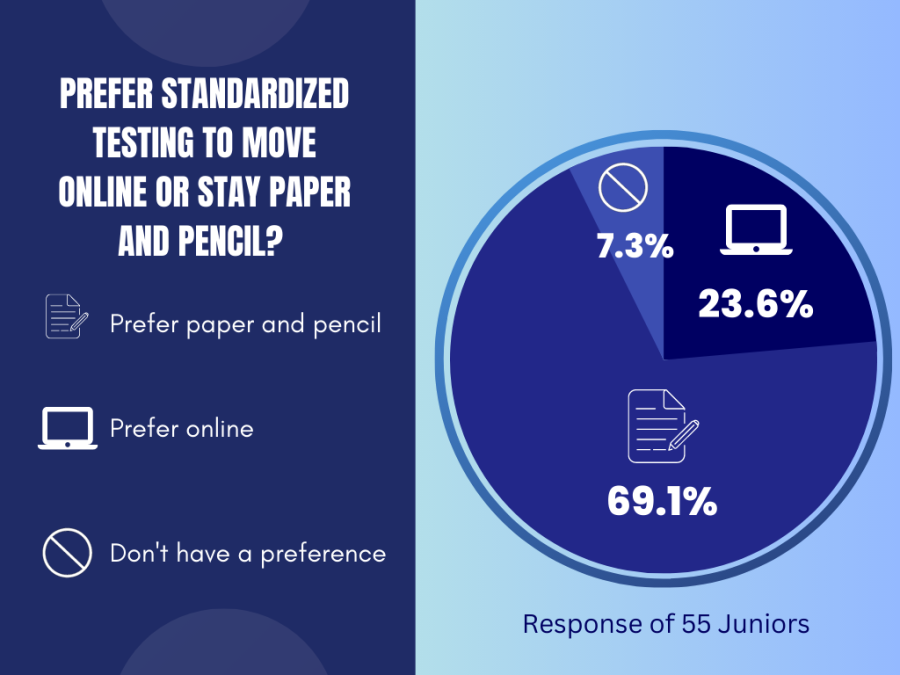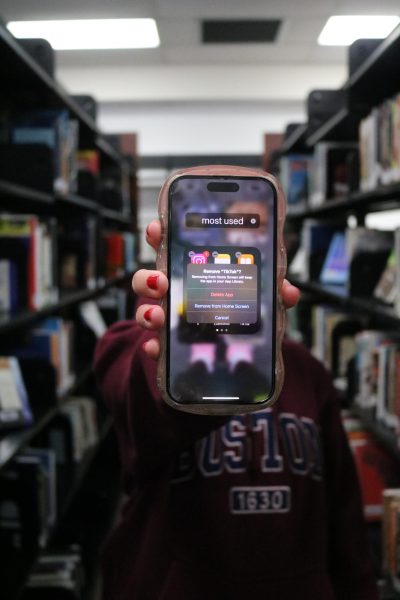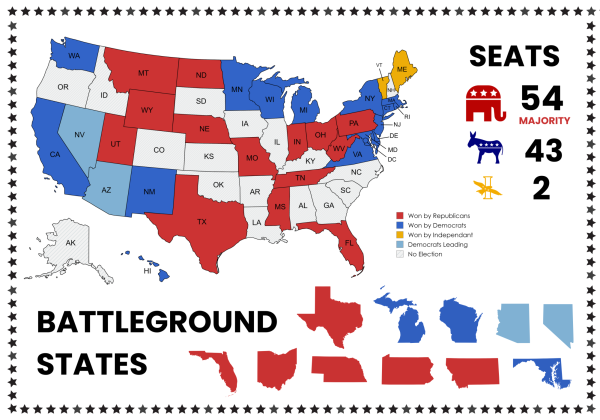Standardized testing moves online
The College Board recently decided that all SAT tests in the U.S. will be administered online starting in the spring of 2024.
International students, as well as anyone taking a PSAT of any kind, will have online testing starting as early as the fall of 2023. However, according to the College Board, “SAT school day and SAT weekend administrations in the U.S. will still be paper and pencil [until the spring].”
Since the beginning of the COVID pandemic, the use of the internet has increased in everyone’s personal and educational lives, and standardized testing is no exception. Due to these changes, the College Board accelerated their already-underway development of online testing.
“Going digital allows us to offer much more flexibility in terms of when, where, and how often the SAT is given, particularly for states, districts, and schools offering the SAT to all their students as part of SAT School Day,” stated the College Board in a recently published FAQ.
One benefit of online testing is the environmental impact. Online testing is considered eco-friendlier than dispersing millions of paper test packets each year. It will also eliminate the pollution caused by transportation of the tests.
In addition, issuing the test online will increase accessibility for many students, namely those with IEPs or other learning plans, students in lower-income or rural areas, and more.
Each test is unique to the individual students, which nearly eliminates the possibility of all tests being canceled because of a misdemeanor with one. This is not the only way the online tests discourage cheating.
“In fact, it’s probably more secure than if someone had paper and pencil, because when time is called on sections, students absolutely will not be able to go back and fill in answers, “ explained Assistant Principal Dr. Ray Albin.
The new online test will be based on the same scoring scale (out of 1600); however, the test itself will be shorter. It will also employ what the College Board calls “adaptive testing”. Through this system, students will take “sections” of the test one at a time, and will be given more difficult questions in the next section according to the performance on the previous. The test will be more unique to each student, as well as allowing them more time for each question.
Students will also receive their scores much faster with the online version than they did with the paper test, which is helpful when it comes to college or scholarship applications.
Despite the benefits of the new test, some students still prefer the more tangible feel of a paper and pencil test.
“I prefer writing [things] out; annotating physically because I feel like a lot of the time it’s harder to annotate on the digital test,” said sophomore Prem Acharya, who has taken both online and paper assessments.
While there will be highlighting/annotating functions on the online test, it is hard to replicate the feel of marking things by hand, which often makes it easier to remember information.
“It’s just a delivery feature of standardized tests now that [the College Board] have been able to essentially come up with the programming for a secure browser and the interactive components that they feel will allow for a good test,” Dr. Albin said. “It’s just more or less an improvement or an enhancement that they’re making going forward that you’re going to get in every standardized test.”
Not only does it affect memory, the screen-time can be mentally taxing.
“I find it easier to focus on paper; staring at a screen for two hours straight is kind of hard,” Acharya said.
The impending question is how this change will impact LHS. Dr. Albin said that he has no concern about the technological capacity of LHS to administer the tests; the only small change is having one or more IT members present in case of technical difficulties. Besides that, the testing will still occur at the school with the same amount of proctors.
“All national [standardized tests] are going to be computerized. I don’t know the timeline for the ACT, but it’s pretty darn close,” said Dr. Albin.




![Mr. Abullh Ali, manager/assistant, helps open Queen Yemeni Coffee in downtown Libertyville at 606 North Milwaukee Ave. With the help of employees such as manager and LHS senior Yousef Taha, they are able to bring the Yemeni and Ethiopian culture to Libertyville by using their Queen spices, cinnamon and cardamom in their drinks such as Adani Chai, which is inspired by Sheda, the Queen of Yemen and Ethiopia. “The history of our coffee [is] a long history and we believe that Yemen and Ethiopia started the coffee and we are bringing something unique to the community,” Mr. Ali said.](https://www.lhsdoi.com/wp-content/uploads/2025/04/Photo-1-600x400.jpg)







